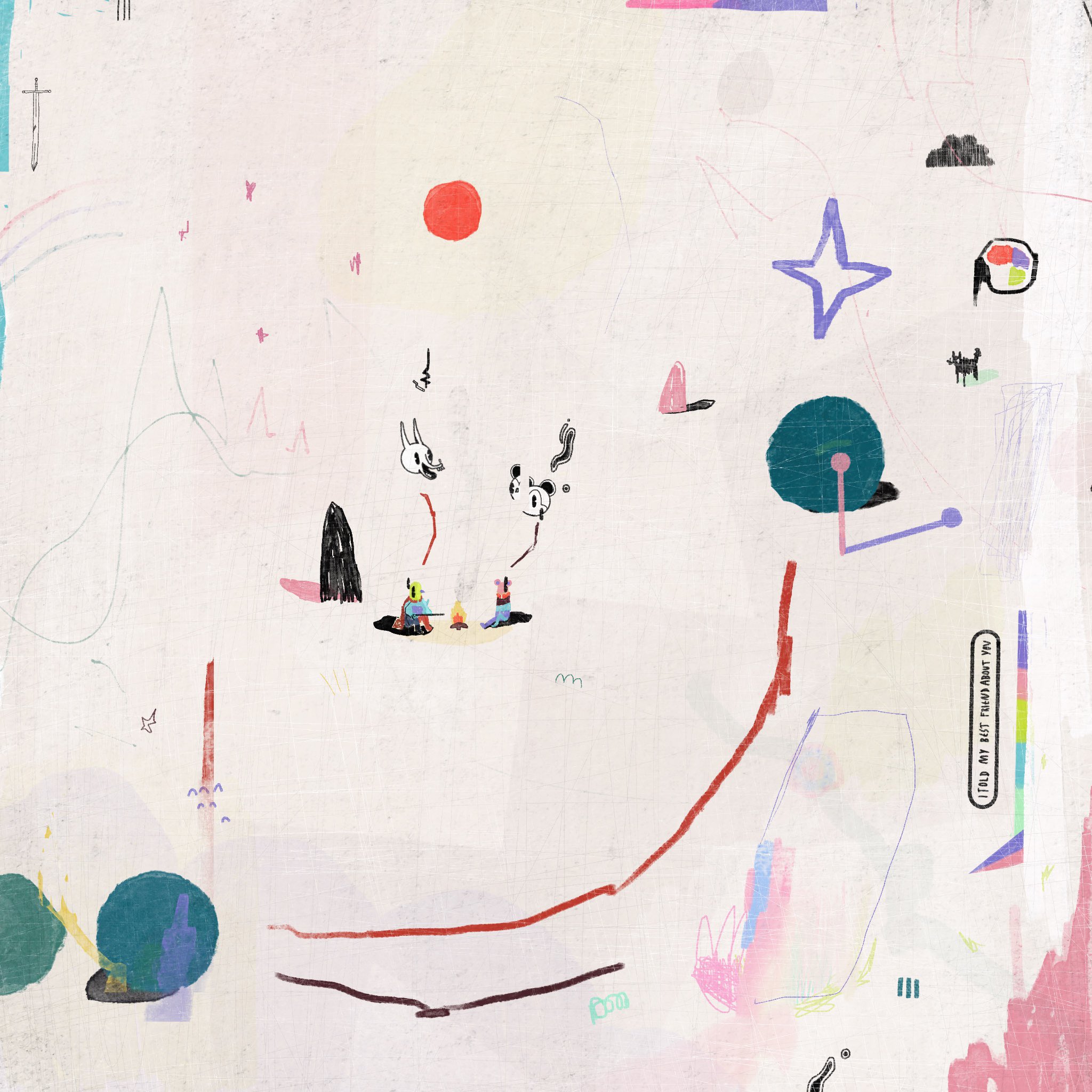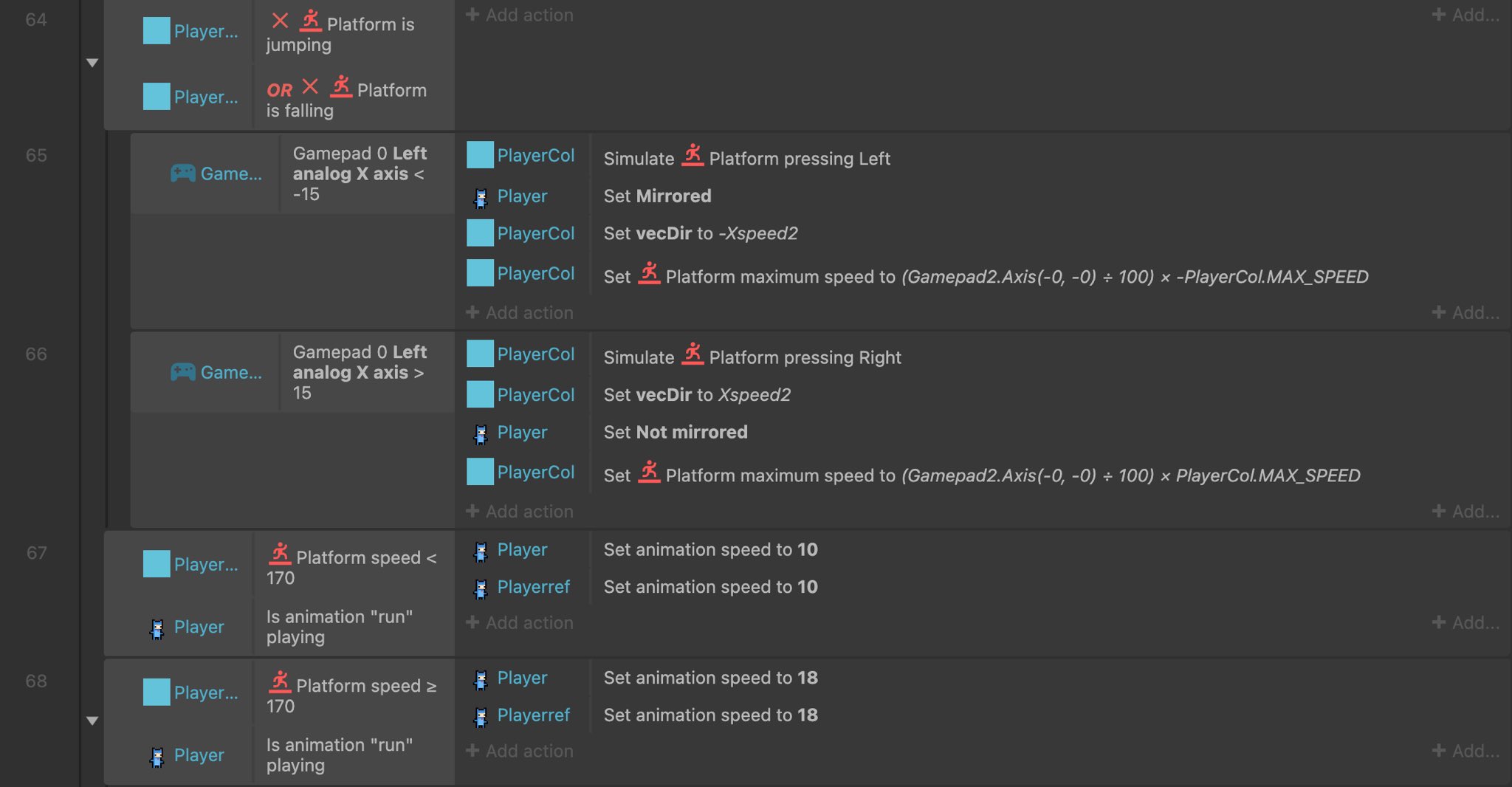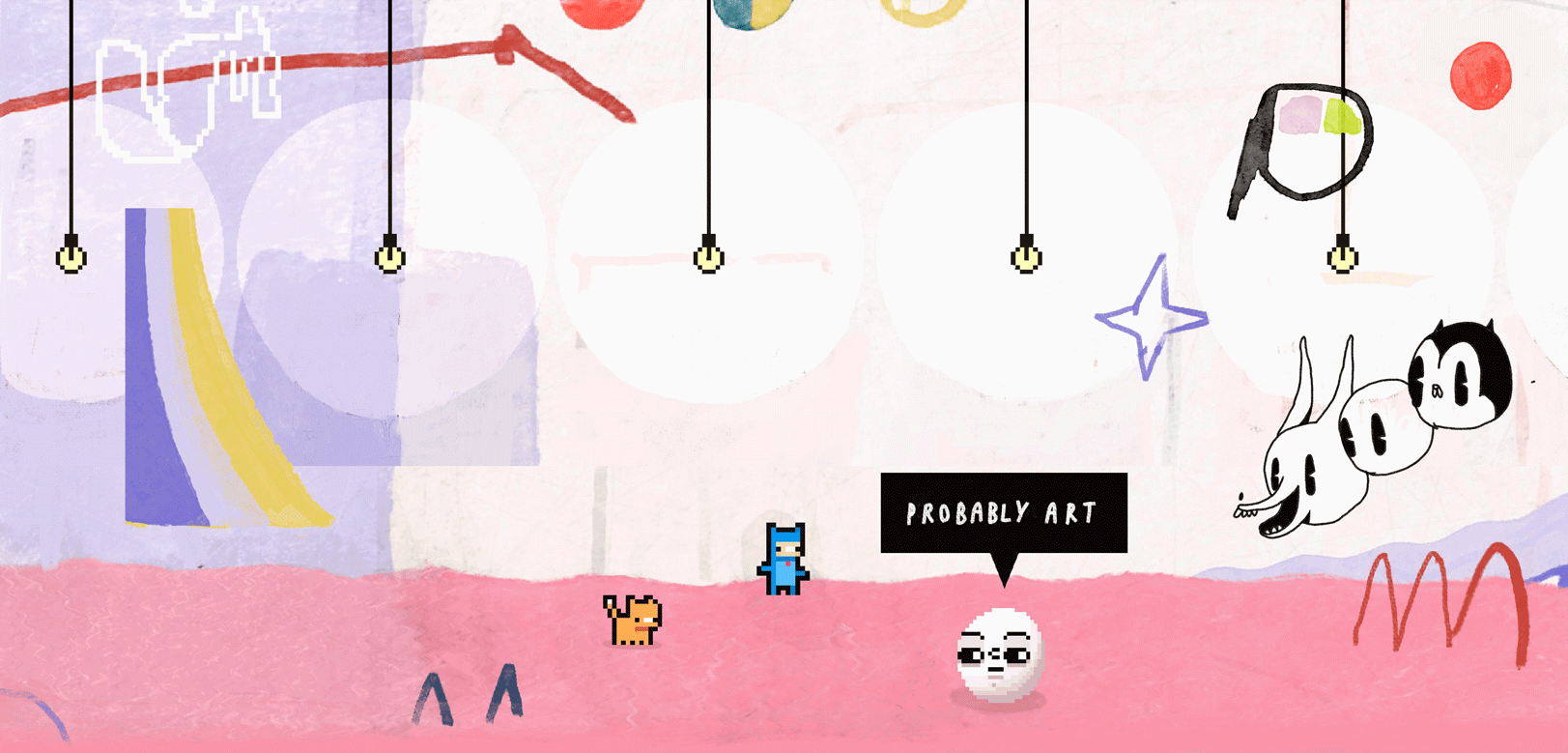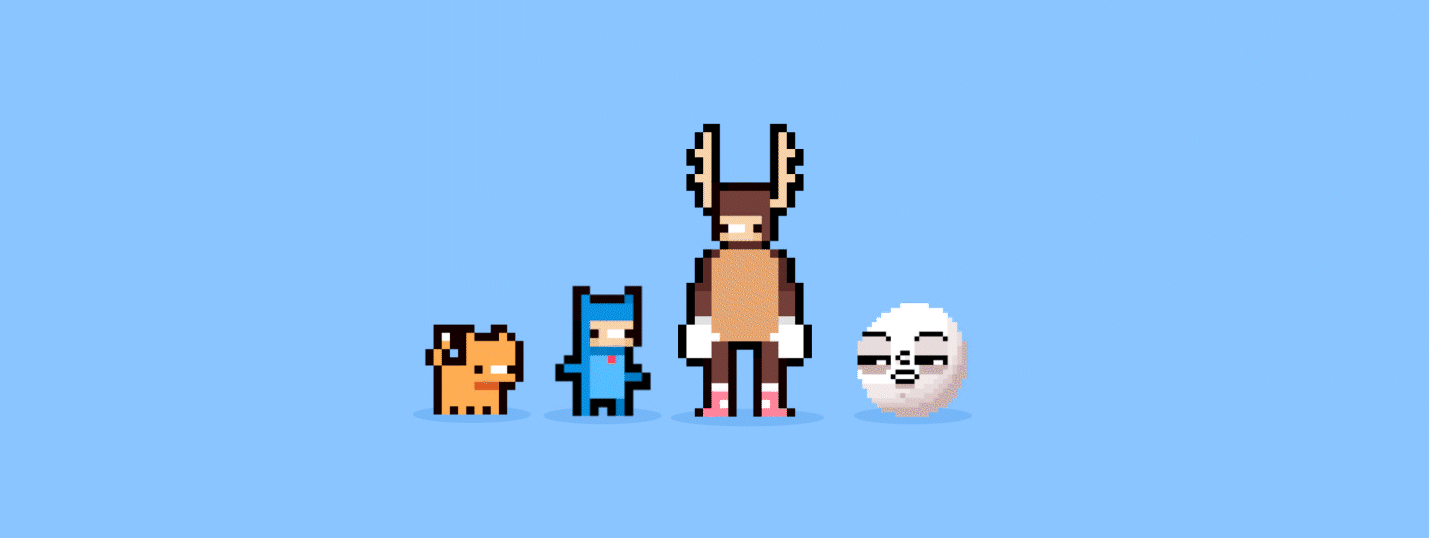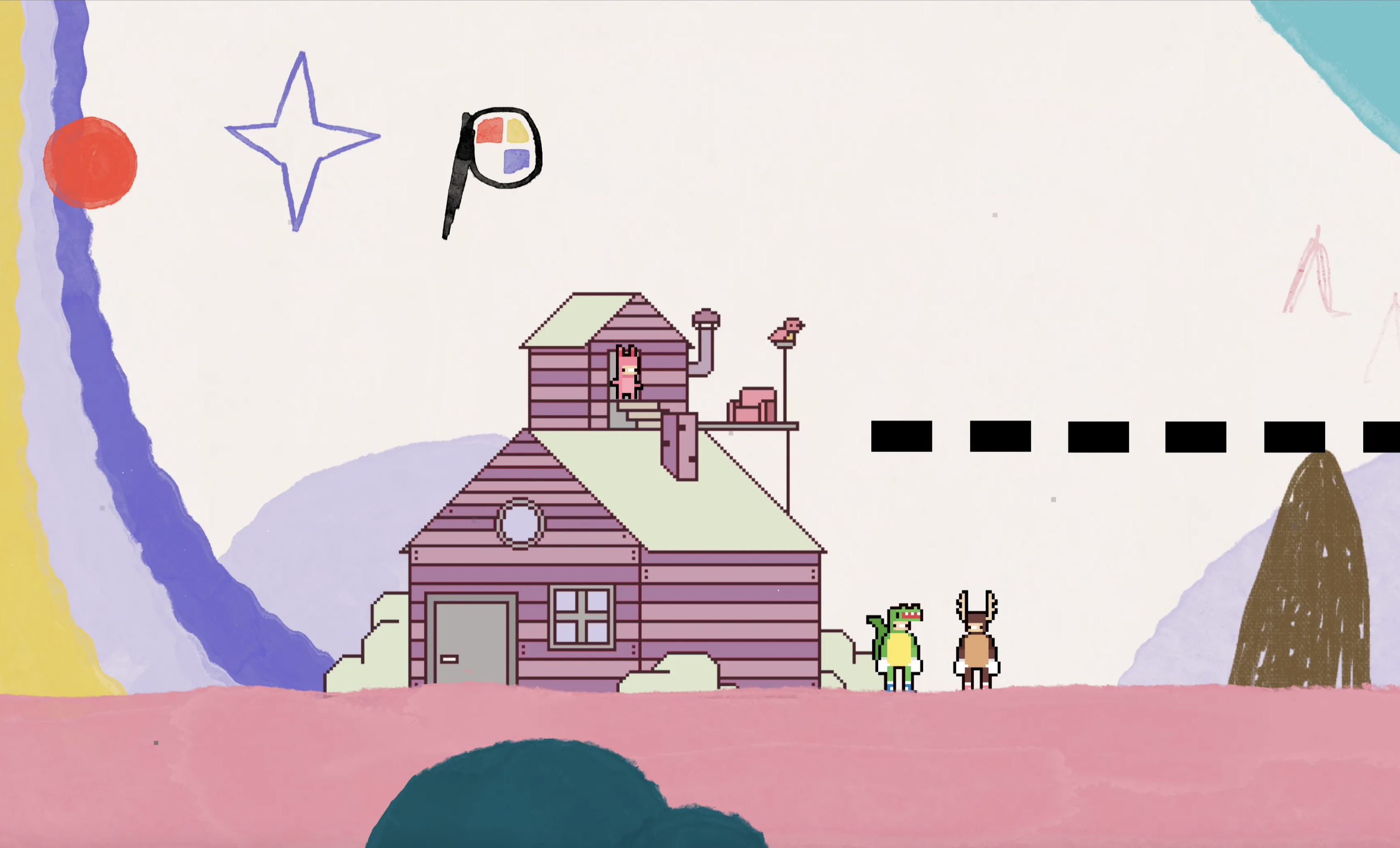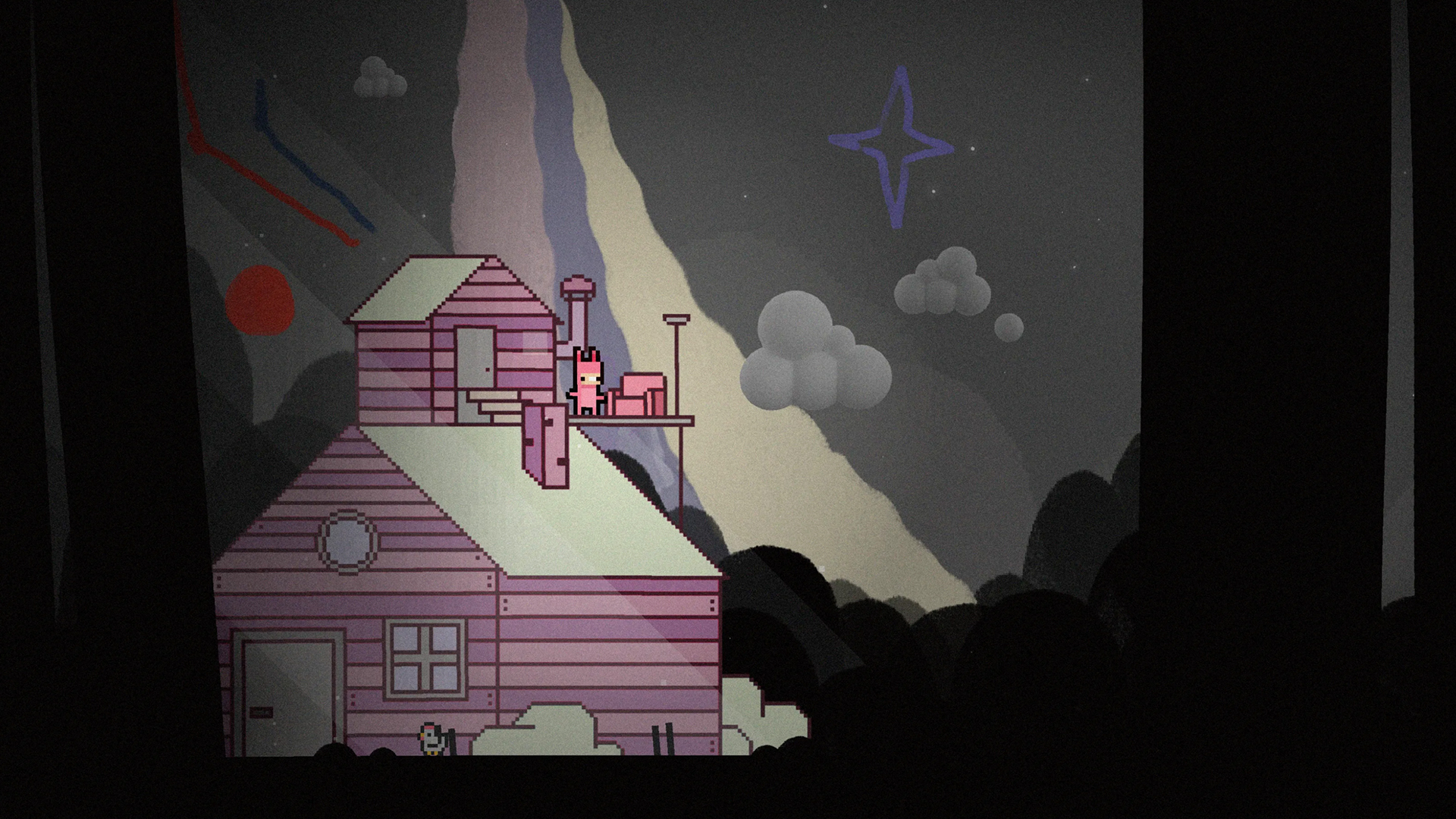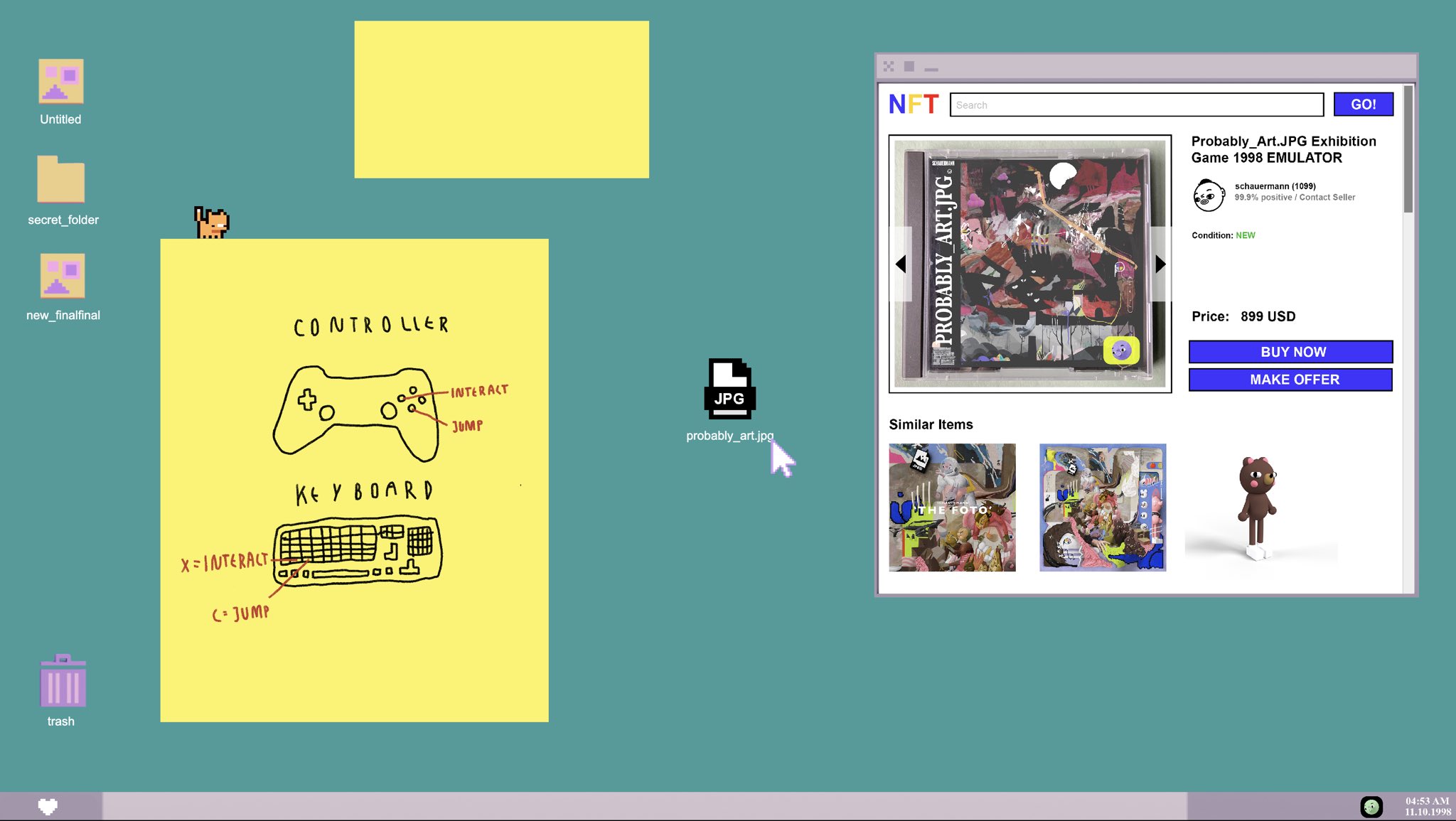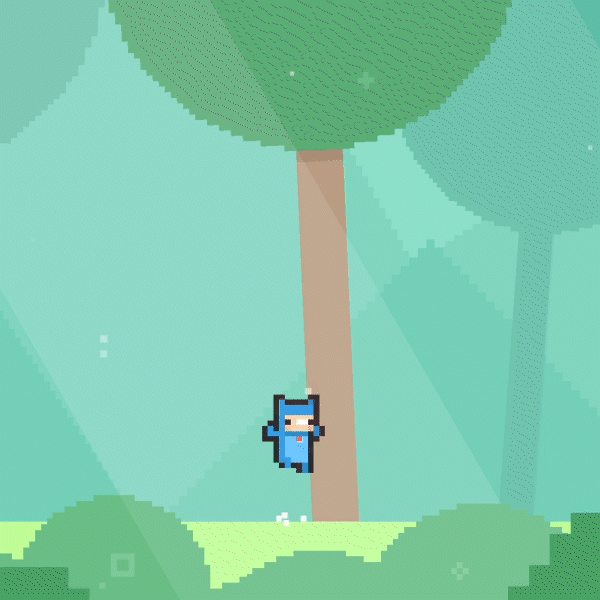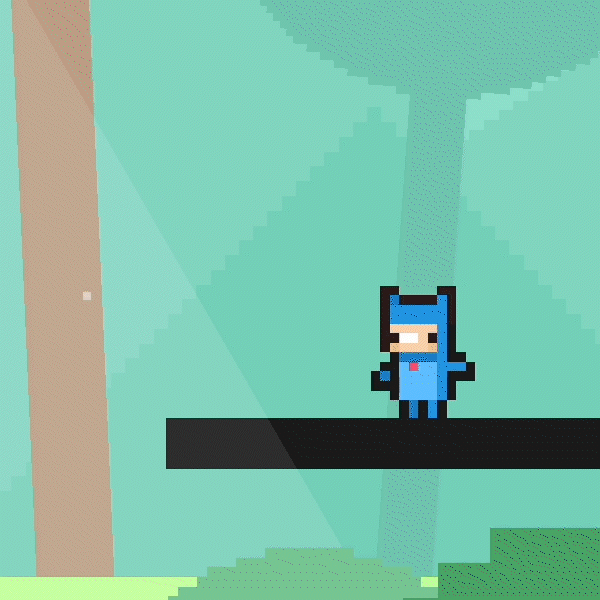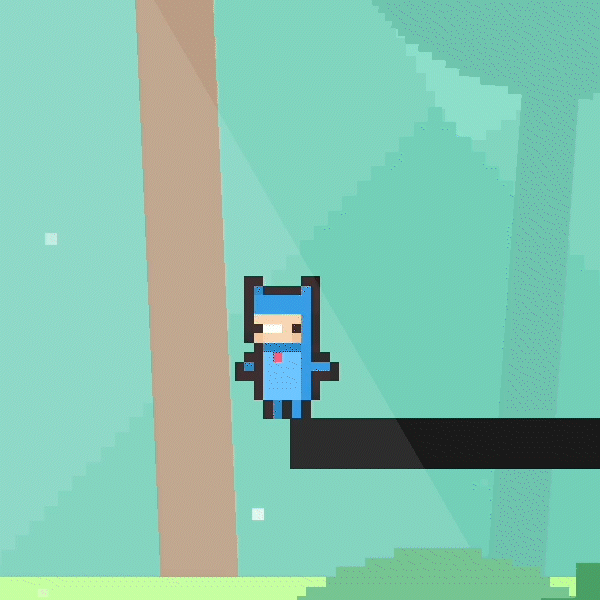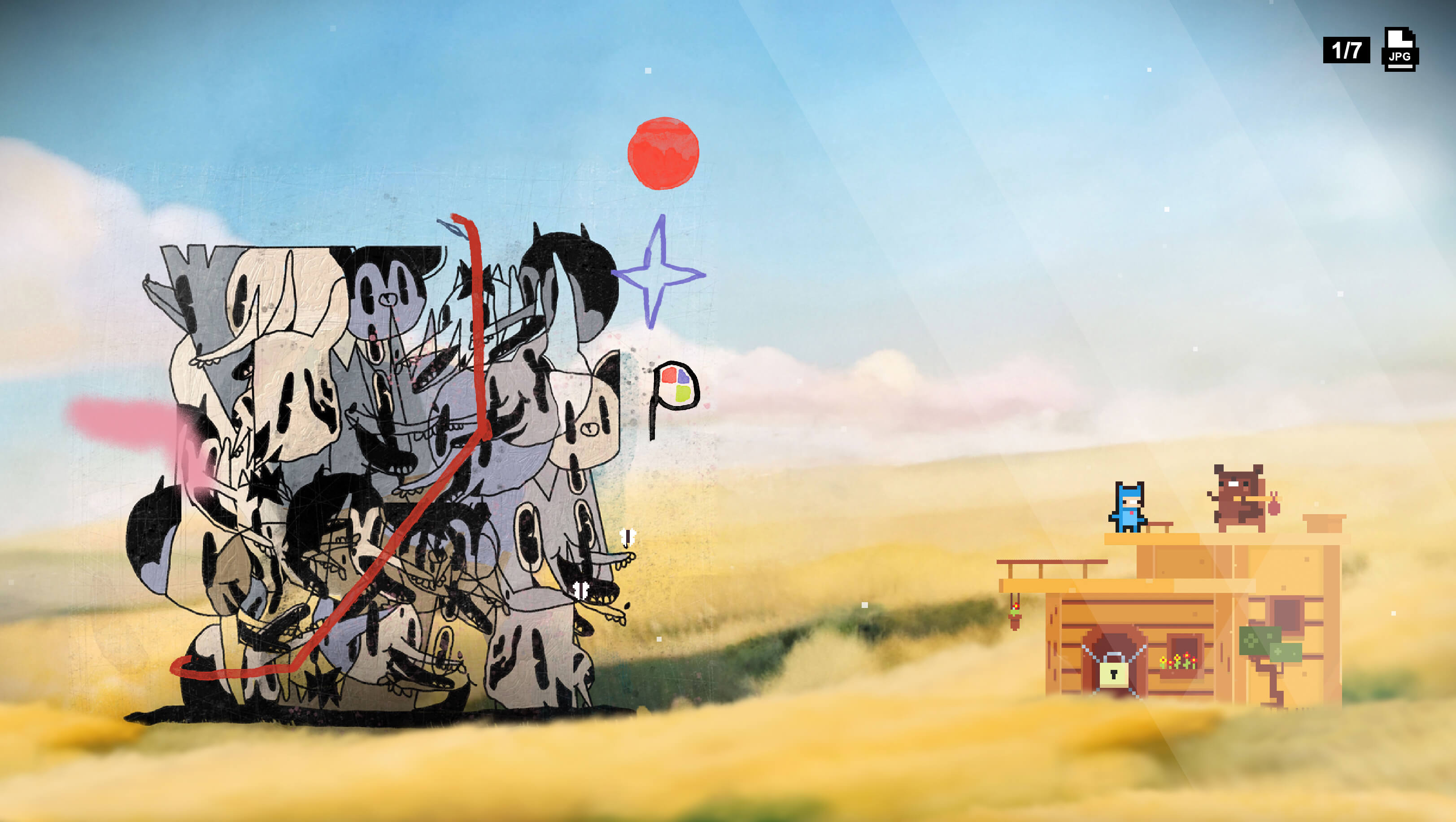
PROBABLY ART — That’s the name of the project I’ve been working on for the past 6 months. It’s a video game that’s not supposed to be a game. More precisely, it’s a virtual art exhibition with gaming elements. I’ve intentionally minimized the gaming aspects as much as possible to focus more on the artworks.
The game is already finished and playable here on itch.io. Since I didn't made a devlog during development, I'd like to use this "Making of" to give some insight into the creation of PROBABLY ART.
You can play the finished game here: https://schauermann.itch.io/probably-art
Trailer
# Check if the player likes the game
if likes_game:
print("If you like my creation, please like and comment on the PROBABLY ART game page. Thank you! :)")

